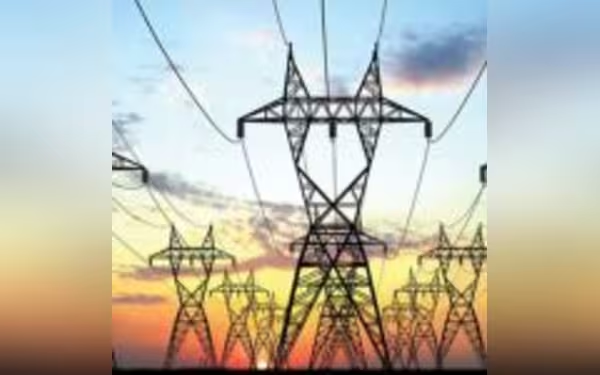Saturday, October 5, 2024 10:33 PM
Government Nears Completion of Power Sector Deals with IPPs
- Negotiations with IPPs nearing completion for power sector stability.
- Tariff disparities highlighted in National Assembly's special session.
- Plans for privatization of distribution companies set for 2025.
 Image Credits: pakistantoday
Image Credits: pakistantodayThe government is finalizing deals with IPPs to stabilize Pakistan's power sector and address tariff disparities.
The power sector in Pakistan has long been a topic of concern, with issues ranging from high tariffs to inefficiencies in electricity distribution. Recently, the government’s energy task force has made significant strides in addressing these challenges by negotiating with Independent Power Producers (IPPs). This development is crucial as it aims to stabilize the nation’s energy landscape and provide relief to consumers.
According to reports, Secretary of the Power Division, Fakhr Alam Irfan, has indicated that negotiations with the IPPs are nearing completion. An official announcement is expected soon, which could bring much-needed clarity to the power sector. The National Assembly’s Standing Committee on Power, led by MNA Muhammad Idrees, has convened a special session to discuss the details of these agreements and the existing tariff disparities. Currently, industrial users are paying Rs78 per unit of electricity, while agricultural users benefit from a lower rate of Rs48 per unit.
As part of the ongoing negotiations, some IPPs may be asked to cease operations, while others with up to ten years left on their contracts could receive extensions. This strategy is aimed at reducing costs for consumers, which is a pressing need in the current economic climate. Furthermore, the Secretary has outlined plans for the privatization of three distribution companies—Gepco, Iesco, and Fesco—in 2025, with additional companies to follow in subsequent phases. This move is expected to enhance efficiency and service delivery in the power sector.
In addition to the negotiations with IPPs, the committee also discussed K-Electric’s readiness for the upcoming monsoon season. Federal Minister for IT and Telecommunications, Aminul Haque, raised concerns about the company’s infrastructure and load-shedding reports. Although K-Electric’s CEO reported improvements and no recent electrocution fatalities, Haque called for a third-party audit to ensure transparency and accountability.
The meeting also addressed a previous incident involving MNA Iqbal Afridi, who faced criticism for inappropriate remarks about a female executive’s attire. The committee unanimously supported a call for Afridi to apologize, highlighting the importance of maintaining decorum in discussions.
As the negotiations with IPPs draw to a close, the task force is poised to implement significant changes that could enhance the efficiency and cost-effectiveness of Pakistan’s power infrastructure. However, it is essential for stakeholders to remain vigilant and ensure that these changes translate into tangible benefits for consumers. The energy sector is a vital component of the economy, and its stability is crucial for the overall growth and development of the country.
The ongoing efforts to finalize deals with IPPs represent a critical step towards resolving the long-standing issues in Pakistan's power sector. As the government works to implement these changes, it is imperative for all parties involved to prioritize transparency and accountability. Only then can the nation hope to achieve a reliable and affordable energy supply that meets the needs of its citizens.













